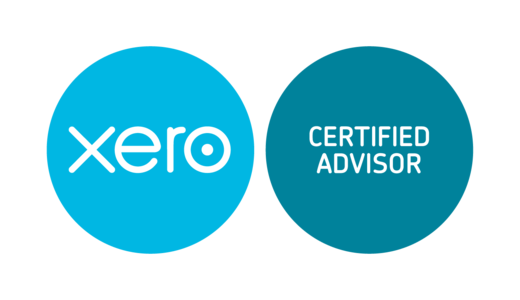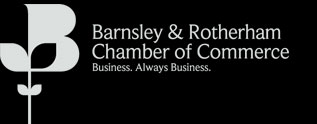Introduction
Bookkeeping is the recording of the day to day transactions within your business into ledgers (Books). This allows you to see how much cash is flowing into your business, how much cash is flowing out, how much you have earned, how much you have spent on various items, how much money the business owes and how much is owed to the business.

What books do I need to keep?
Any good bookkeeping system should have the following books:
Cashbook – This shows the receipts and payments of cash in and out of your bank account
Petty Cash Book – The Petty cash book is for recording small payments out of cash and for recording monies drawn from the bank for small cash payments.
General Ledger (Nominal ledger) – The general ledger is comprised of all of the profit & loss account and Balance Sheet ledgers, for instance sales, purchases for resale, stationery, postage, fixed assets, cash at bank, trade debtors, trade creditors, vat, corporation tax, share capital, retained profits.
Sales Ledger – The sales ledger has an account for every single customer you have sold to. It shows for every customer how much they owe you at any time.
Purchase Ledger – The Purchase Ledger has an account for every supplier you have purchased from. It shows how much you owe to each supplier at any time.
Sales Day Book – The Sales Day Book is a list of sales made on credit to customers. Each month, monthly totals are posted to the debtors account within the nominal ledger.
Purchase Day book – The Purchase Day Book is a list of purchases made on credit from suppliers (including purchases for resale as well as overheads such as stationery and light & heat). This is analysed into columns for each expense category. Each month monthly totals are posted to the nominal ledger from each column.
Not every business will need to keep complete sets of books included in the list outlined above. For instance if you do not sell on credit terms you will not need the sales day book and the sales ledger as customers will be paying you straight away for goods and services provided. The bookkeeping system required will differ from business to business.
Why is Bookkeeping so important for my business and what happens if I do not do it correctly?
Bookkeeping is the foundation and building block for everything you do in your business accounting. Without complete and accurate book’s the following will happen:
- Your vat returns will be incorrect and you could end up paying more vat to HMRC than you need to do if you have not claimed all of the expenses you are entitled to claim for.
- The business’ Profit and Loss Account and Balance Sheet will be incorrect.
- Sales (Debtors) ledger will be incorrect meaning you will not have an accurate record of who owes you money. This will impact negatively on your cash flow.
- Your Purchases (Creditors) ledger will be inaccurate. This will mean you do not know how much you owe each of your suppliers. This could potentially lead to charges for late payment of invoices.
- If you are a sole trader your self-assessment tax return will be incorrect. This will mean you may pay more income tax than necessary
- If you are a limited company your company tax return will be incorrect. As a result of which you may end up paying more corporation tax than you should be paying.
- Worst case scenario you may not even be able to produce any of the above items at all and will begin receiving penalties and surcharges from HMRC.
The problems above are caused by the following:
- Misplaced paperwork resulting in unentered invoices.
- Not performing a monthly bank reconciliation. Bank reconciliation is the most important task that needs to be undertaken within any bookkeeping system. Generally speaking if the bank balance within your bookkeeping system is a true reflection of the amount of cash held in your bank account, the rest of your bookkeeping should be correct.
- Transposition errors, basically numbers entered the wrong way round.
- Transactions entered to incorrect nominal codes. For instance a new computer entered as an item of equipment on the profit and loss account instead of as an item of office equipment on the Balance Sheet (as a fixed asset) on which capital allowances may be claimed.
- For businesses who still use spreadsheets to produce their bookkeeping, simply doing a list of payments and receipts in and out of the bank account and not performing the double entry (every transaction should have two sides to it (a debit and a credit).
What Bookkeeping package would you recommend for my business?
In the modern business world it is recommended that you take advantage of the various cloud based bookkeeping packages that are readily available. Packages such as Xero, Quickbooks, Sage Cloud, Kashflow, and Free Agent to name a few. All of these packages provide the following benefits:
- They allow you to login, view and work on your books from anywhere where you have an internet connection.
- Automation of tasks such as entering recurring monthly invoices and bills of the same amount to various customers and suppliers.
- Uploading of your bank account transactions via bank feeds into your bookkeeping system. This saves you having to manually enter every single transaction. Your bank transactions can then be reconciled at the click of a mouse.
- If you are vat registered you can file your vat return with HMRC from within your bookkeeping system.
- If you are a Limited Company and use Xero you can file your statutory accounts and company tax return with Companies House and HMRC from within Xero. This can save you a huge amount of time and money.
Bookkeeping advice & assistance
If you would like advice or assistance with any aspect of your bookkeeping please email info@millhouses-accountancy.co.uk or call
Sheffield 0114 345 0960
Nottingham 0115 882 0356
London 0203 146 4808






